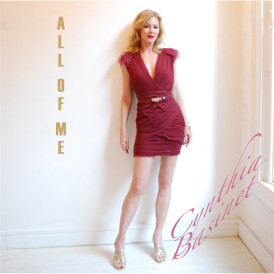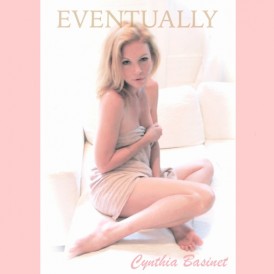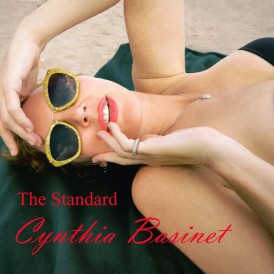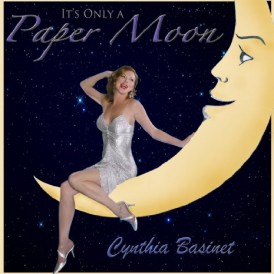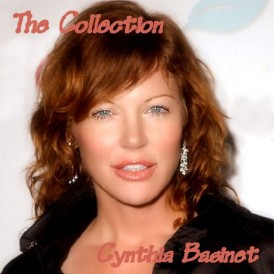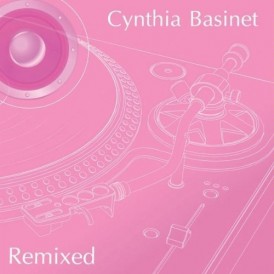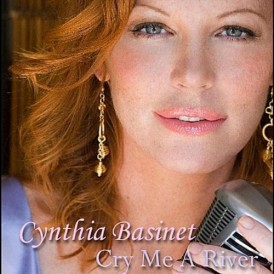
Exclusive interview for International Women’s Day with Cynthia Basinet, a multi-talented American actress, singer, supermodel, mother and activist for the Western Saharan Sahrawi people, from the San Fernando Valley, Los Angeles county.
Life is a journey. Cynthia’s journey took her to the top of various interlocking disciplines and roads less traveled. In this exclusive interview we’ll attempt to paint the full picture and put some perspective on the life and career of this remarkable woman.
Thank you, Cynthia for granting us this interview. There are so many things we want to learn about you at once, but in order not to confuse ourselves and our readers let us start at the point where every journey starts: the beginning.
From our research we gather that having been born in the ‘liberal’ surroundings of LA’s San Fernando Valley and being raised in California’s Silicon Valley have determined your journey. Your parents and formal education on both public and private schools being very instrumental in your early development. Is this an accurate assessment on our part? Could you elaborate on it?
Yes, I do believe that growing up in California, first under Governor Brown, then sadly Ronald Reagan. Several things changed in that era, Proposition 13 [officially named the People’s Initiative to Limit Property Taxation (1978)] and it’s follow up, farmland to Silicon Valley and the venture capitalists that descended on an area that — dating back to Lockheed and HP — was a highly organized version of creativity. Probably my education was the perfect formula for that.
Education is key. Education is far more than scoring A grades. We quote you on attending a private Catholic high school “as a school, where within its walls, thought was allowed and individual diversity was respected.” It seems to us that you really enjoyed your early education as it allowed you to explore and further develop your personality?
Indeed. Now, revisiting my high school alma mater, Archbishop Mitty [High School], their credo is a “peace school”. So again, this nurtured the base that has helped me see the largest dream possible and succeed. The fact that hypotheses were tested over multiple choice. As if hypotheses are 3-D and the other flat.
We also quote you on self-managing your Attention Deficit Hyperactivity Disorder (ADHD) far before kids were diagnosed as such and the topic became trending in education circles. It seems to us that you were able to overcome this alleged adversity on your own accord without counselling or drug prescriptions and channel your energy towards propelling your life and career forward?
It’s been a very, very long process in multiple stages. Yes, I was drugged as a child. I believe however that we have a true path with open chakras. The drugging of our children can alter their social communicative skills, their development and worse. Perhaps, propelling a life of drugs was an answer to a need for balance.
Later in life however, being a better mom, exporting my creativity as an actress and my own son’s learning process led me to a better understanding, to isolate ideas, sound, which helped both him and I.
The final stage of this process — much later — in 1998 — was to balance my mind and open up chakras to be grounded in any situation. Albeit the past few years have been beyond traumatic.
At any rate, as one very close to me and keen bodybuilder and actor, Sven Ole-Thorsen told me over and over “discipline is your friend” so I have kept a regular exercise regime, healthy diet and a little tool box of mind relief. No matter what stage of development you are it’s good to balance with professionals. After all, that’s what they are there for.
It seems to us that you never were either a singer, model or actress at any given point in time, but that you were all of them at the same time. Could you point to a single event that made you decide to pursue a career in a particular discipline or was it much more an organic process of seizing opportunities. Carpe diem?
Well, I think like many moms and certainly young single moms your larger dream and purpose in life is buried under chores, care of others and support of. So yes, I tended to change careers in the long pursuit that has delivered me here but I was also forced out due to competition. Rather than fight, I switched to other media.
Cynthia basinet began her public career as a fashion model in San Francisco. Then on to five more years on the international modelling scene in London, Milan and Paris — where she learned to speak fluent french and studied french cinematography.
You ventured out over the world at a pretty young age. From the US to Europe and beyond. This must have greatly enriched your life and broaden your perspective. We realise this is a pretty broad topic, but what did you learn from the experience?
Well, the funny thing about being a redhead on [photo]shoots is you are an asset; so it meant a lot of time sitting on locations. I learned so much about the politics from the people that surrounded me at that time.
For instance, I would meet the drivers family for lunch then return to the set in Malta. I would sit in the rain with Turkish kids selling popcorn and soda at the Berlin Wall — in a then divided city. I watched a gypsy girl being sick in the streets of Paris, at the Champs Elysees, as tourists marched by. The Algerian grocer who would give my son a California strawberry on the way to school every morning, because he was that “California boy”…
From modelling to appearances in music videos, commercials and acting. It seems to be logical next step. How did this come about? Was it as logical and natural as we presume here? Did you take acting classes, hire an agent and join the movie role tombola as so many aspiring actors and actresses do, or was there a bit more to the story?
There is. I studied acting for eight years. I was always the one to watch or bring other actors up, as they say. However, it became more and more apparent that competition just overtook the ability to continue working in whatever genre I participated in. This has only been compounded due to the internet, which has propelled me towards activism for the last twenty years in terms of rights on intellectual property, displaced societies, mental health and addictions.
Acting, the movie industry at large, apart from being an art form as well as a business, has gained notoriety as of late in terms widespread sexual harassment and misconduct allegations. #MeToo has had a huge impact on tinsel town. It seems no news event from Hollywood goes without some reference to #MeToo [and it’s #TimesUp offshoot]. What is your take on it? Will #MeToo change the industry forever? For the better?
First of all, sadly the #MeToo movement, just as #TimesUp, were both born as a PR response to my persistent activism. It was not until addressing the issues of [Harvey] Weinstein that the media went deeper than the casting couch.
It is the issue that I for twenty years was not only was facing a blacklisting, my work was relentlessly being recreated for Weinstein’s shows, talents, posters, sets and red carpet promotion. This was compounded by a photo taken in front of a #zerotolerance poster at the United Nations after addressing the United Nations Security Issue on exactly this point, namely that intellectual property is a human right which is now being diverted by fake social media algorithms and fake news.
The control of a few has limited real talent and diversity. In reaction, up sprang the #MeToo movement. I am now blown away, at how universal — even if unwittingly — the issue of abuse in the workplace had really been. I always felt my vulnerability here in Hollywood as was a single mom. The nepotism and the same pattern that I had witnessed firsthanded as a “supermodel” in Milan and Paris plagued me here [in the US].
The mistreatment and abuse of women on a global scale; Be it in the privacy of our homes. Be it in the working place, in terms of inappropriate behaviour, inequality in terms of payment and career opportunities. Be it in terms of culturally instilled aberrations like female circumcision. Be it in terms of policies or the lack thereof with regard to contraception and the woman’s choice to life. Wouldn’t you say that #MeToo is a both symbol and symptom of a much deeper lying structure of abuse?
I grew up to “I am woman, here me roar” Charlie commercials balanced with old school “behind every great man is a greater woman”. However, upon my return from Europe all bets were off. The wonderful luxury that I had enjoyed as a single mom changed. ‘Mean was keen’ and it’s been that way ever since.
Throw in a little blow and America could not care less about female circumcision in the world. [Despite it being referenced as far back as 1954 in an Alfred Hitchcock film featuring Grace Kelly. It should be noted that Mr. Hitchcock’s wife controlled dialogue and set direction, and so caught the eye blink at the end of ‘Pyscho’ and had it re-edited].
This has all been a long brewing situation. When venture capitalists invaded startups in the early 70–80’s it destroyed the long term work dynamic. If a man is being replaced or changes job every 3–5 years, then so is his family; and the infrastructure at work breaks down. It’s a whole new crop to hit on, as men move about and ‘divorce being the norm’ took hold.
Add to that egotism, vanity and superficiality. Hair, clothes, nails, skin, bodies are demanded to look like the latest Vogue cover and this has invaded every aspect of our lives, through all mediums. Then add to that the internet with free sexual gratification and it’s been a toxic cocktail of declining women’s values.
Thanks to soft porn we think nothing of the constant pouring from Instagram and Snapchat by the likes of the Kardashians and their runner ups. For me, the only counterbalance to this travesty and caviat was to utilize the visibility I had via that same internet to launch a music career and utilize the voice it gave me [in terms of activism] worldwide.
From our perspective social activism nowadays seems to be geared towards a single issue. #MeToo, #TimeSup. #ZeroTolerance, #BlackLivesMatter. Each cause has its own hashtag; which is a good thing because without the proper media exposure these causes would probably fail to reach a larger audience.
On the other hand in doing so we also might fail to see the bigger picture. #MeToo and #ZeroTolerance date back to 2006, well beyond the current surge in public interest. Black lives mattered well before 2013. We all know what BLM stands for but who remembers Rosa Parks and what she stood for?
There seems to be something fundamentally wrong with our interhuman relationships, which not only extends to the man-woman relationship but also that between cultures and societies. A struggle for power, control and greed instead of love, mutuality and respect. What’s your take on this?
I think men have been pitted against women and womein against each other for decades and this has created a no love, #stalkarazzi valued, no respect society. We are all cut up into metadata for analysis and terms of profit. When we get caught up, pops a #. I know, it’s what I’ve been doing for decades. The hashtag narrative has been incredibly successful in linking people, which is why the mainstream media has gripped and controlled it so hard. It’s turned into just another way to control and divide to sell for magazines, brands, red carpets and media.
Of course we are all ‘guilty’ in a sense of using the hashtag meme as well as condeming the superficial nature of it at the same time. We use our #UbuntuFM hashtag in nearly every post. You have basically created your own brand with the #stalkarazzi tag. Please explain.
Well, #stalkarazzi is not a compliment. It refers to a predatory practice. The term comprises of ‘stalking’ and ‘paparazzi’. Those two terms fused together most regrettably with the tragic death of Princess Di. I have been stalked and had to deal with paparazzi myself. #stalkarazzi stands for the relentless bullying in terms of a social media that is being dominated by celebs, brands, media companies that feed of the intellectual property created by others; original, creative and indepedent people and artists like me.
Being a mother yourself wouldn’t you agree that a lot of this has to do with the way we raise our children? If we fail to raise them and see them grow into responsible adults what then is there to be expected from society at large?
America has lived in a bubble, staring at themselves in their yoga pants and undies and all for so long that they forgot to do anything. I mean, how could I do selfies? I was a single mom. Didn’t use a phone to chat till my son was in bed. Had one of those stupid beepers which had LED readouts for emergencies and my agent.
My son was my whole life. As were my kid, god kids, men and friends. We seem to have lost the love in lieu of fake everything. And now we have a President which is the accumulation of all that media manipulation and men’s hatred to women and women fighting with women. A perfect storm of hate we are exporting just to sell product! Everything is a ‘snark’ and no one takes responsibility for being wrong.
Cynthia basinet is no stranger to social activism. In early 2001, she became the figurehead and spokeswoman for the plight of the Sahrawi people. Sahrawi are a nation of nomadic tribes, ethnically mixed descendants of Berbers, Arabs, and sub-Saharan Africans, who call the Western Sahara their ancestral home.
The Sahrawi have always been fiercely independent. From the 17th century onwards the nomads banded together to defend their homeland against exploratory expeditions by the Spanish and Portuguese. At the conference of Berlin in 1884, — the great colonial shakedown at which the African continent was carved up into various zones of influence — Spain obtained a protectorate in the Sahrawian homeland that would eventually become known as the Spanish Sahara.
Spanish colonisation did not come easy however and it was not until the 1930s that Spain, with the help of the French, was able to “pacify” the Sahrawi. The Western Sahara is still a disputed territory claimed by both the kingdom of Morocco and the Polisario front. It is listed by the United Nations as a non-decolonized territory and is thus included in the United Nations list of non-self-governing territories.
The Sahrawi are currently 4–500,000 souls strong, of which a significant number have been living in refugee camps in the Western Sahara for decades. The Sahrawi have been recognised by the un as holders of a legitimate claim to self-determination, a right which is firmly enshrined in the Charter of the United Nations.
How did you come about the knowledge of the Sahrawi refugees and their plight? What was it, in terms of your humanitarian work, that drew you to this relatively small and lesser known group of “Inhabitants of the Desert”?
I am so impressed by your research and understanding of the Saharwian plight. My entire journey was a dream lived via effective altruism that took decades to see come to fruition with the success of “Santa Baby”.
My path of self determination, to visibility and independence, echoed the sentiments that paralleled with the rights of many. This had caught the attention of Mr. Carlos Wilson of the US-WSF, United States Western Sahara Fund. They extended an invitation to me to visit the camps along with Suzanne Scholte (later garnering Seoul Peace Prize), Senator Ted Kennedy’s staff select, the Swedish dignitaries and many other NGO’s.
Once I was allowed to see why my struggles had aligned to another’s there has been no turning back on my path of activism, which propelled me to visit the Saharwian refugee camps and later, adressing the UN several times after garnering a shared Nobel monimation with other Peace Women across the globe in 2005.
What was the initial response of the Sahrawi people to your effort in bringing the knowledge of their situation to the world’s notice? And what successes do you count so far?
There were of course the immediate successes. Raising aid, meeting and welcoming refugees, their families and their stories. Collaborating with other like minded NGOs. Performing for, photographing and later raising awareness for was so liberating.
It was both so very, very frustrating and heartbreaking as the events of 9–11 loomed overhead shortly after our visit to the camps. The despair that despite learning of issues like Al-Queda and informing our government and all, war came to America. America has continued on that path since.
What can we learn from the Sahrawi struggle, as their plight is not a standalone case but in fact is being faced by many peoples around the world? And what role do Sahrawi women in particular fulfil in this struggle?
The Saharwian struggle is UNIVERSAL! “Displaced societies are of value. Their issues are our issues”. This is from my 2005 speech before the United Nations Security Council (one of many to come). This applies to real estate, environmental, societal and of course, political displacement. In other words, one way or another we will probably all face being refugees.
How do you encourage a world to utilize self determination and peaceful solutions when we’ve been on a trajectory chart of the reverse?
In 1999, Cynthia’s music career took off via the internet thanks to mp3.Com and her first fan, Fern Reid, the Canadian discoverer of her music. It was the worldwide success of a dream fulfilled and support that came her first release “For You With Love” which contains four Jazz renditions from the great American songbook:
-
‘Someone To Watch Over Me’; 1926 original by George and Ira Gershwin
‘Santa Baby’; 1953 original by Eartha Kitt
‘Tea For Two’; 1925 original probably most famous for the 1950’s movie starring Doris Day which reintroduced the song
‘Haunted Heart’; 1948 song by Howard Dietz and Arthur Schwartz (also in the film, “The Two Jakes”)
It is said that you recorded and released the album as a gift to actor Jack Nicholson with whom you were in a relationship at the time. Quite an amazing feat and expression of love. Most singers record and release their material with a larger audience in mind. How did this come about?
LOL. Yeah. Those came out of being sung to and recorded starting in 1997; with that came the same fears and tears any person might have. If one person sees this expression and growth as “A Star Is Born” and the other sees it as an expression of love and CAA, ABC, CondeNast, NBC and all the #stalkarazzi can get in between for a profit, the only compass of truth is love. Period. So yep. Self financed except for “Tea for Two” which was a wonderful opportunity to work with a brilliant Japanese producer whose songs resonated my vintage sound with his Zen Zootsuit Band and later, “You’d Be So Nice To Come Home To”. I cherish so very much, Doc’s faith and Doris Day’s life inspiration and vocal prowess to bring those songs to life.
For You With Love” contains the hit single “Santa baby”. Cynthia’s rendition of this track is often mis-credited to Marilyn Monroe as other artists like the Pussycat Dolls, Shakira, Pink Martini, Taylor Swift, Kylie Minogue, Kellie Pickler, Gwen Stefani, Ashanti and hundreds maybe even thousands more recorded the same sultry version of the song as Cynthia’s version which may be deemed as a statement of her vocal excellence.
As the release of “For You With Love” was not intended with commerce in mind, but rather an act of love, the subsequent success and impact of “Santa Baby” must have come as a total surprise to you?
The success of “Santa Baby” was a 28 year dream realized, built on hope, faith and love. So the freedom that it bore was so liberating, all I could want from that moment for was to see others have the same. What did hit hard was the advent of the stalkarazzi and Silicon Valley’s tech industry to capitalize on the intellectual property. That I was not expecting. Just ripped the profit from my children’s mouths. Haven’t seen prezzies under the Christmas tree since. What started with illegal file sharing is now the complete overtake of my every visual, sound, move, style, thought and expression.
In 2017 Cynthia re-released the tracks from “For You With Love” as well as 7 other previously recorded and released tracks as “The Standard”, an album we have previously reviewed and aired its tracks on our radio. To us, “The Standard” is setting a new standard in re-capturing standards from the great american songbook.
Next to Jazz, Cynthia has also released a number of Pop, Country, R&B and Dance tracks over the years.
The success of “Santa Baby” being complete and possibly overwhelming, don’t you feel however that “Santa Baby” — being a Christmas song — is limiting you somewhat in terms of recognition as an accomplished Jazz singer?
Perhaps, more because it’s attributed to Marilyn Monroe, who is no longer here and a very largely promoted brand. So between surviving aforementioned issue it’s been a bit draining to only repeat, “Hi, I sing “Santa Baby”” Blank face response… to which I add, “The one everyone thinks is Marilyn Monroe”, their response, “OMG I LOVE THAT SONG! That’s YOU?!!!!! OMG OMG OMG!”
In your music, your voice stands out quite naturally. It has this melodious ring to it which easily fits to different kind of genres from Jazz to Pop and even Dance. Quite amazing. What inspires you to do these different kinds of music? First, that’s very astute to observe and kind to say. I would record so many more, my releases are merely bookmarks for what’s next. Is it the need for self-expression or the desire to communicate a message across to prospective listeners of your music?
It’s always a message. Always…
So far Cynthia we have seen you perform in very different capacities. As a model, actress, singer, mother, wife, girlfriend, activist, a public figure and as a role model. How do you balance all this? Where do you derive your energy from?
Oddly, none of that applies. To anyone around me, I am what they see they need. Where do I derive my energy from? Nature. Kindness between people. Silly love songs. And a lot of exercise. Preparing good food. Write a lot. And everywhere I go like to do three good deeds a day, reuse items at least twice and give an idea for profit to small business owners and minorities (single moms, immigrants, inner city, etc). Unfortunately, the 1% are hijacking that value of America’s core values.
We should not forget to mention that you are also a business woman as you run your own label Welcome To Dreamsville Records and media consulting firm. What projects are you currently working on? What can people expect from you in the near future?
Publishing first in a series of written works. “How To Be Civil In An Uncivil World” What can people expect from me in the near future? Well, am hoping the seven year struggle of my recently concluded divorce turns to a very fruitful depth in new music. When you are deprived of something as natural and as necessary as breathing, which is what singing and speaking are to me amazing how much more appreciate when you get it back.
In closing, when a younger generation would read this interview and derive inspiration from it, what message would you have for them?
We are all in this together. As Gandhi said, “Be the change.” Slow and steady wins the race. And no one succeeds when the least do not.
If you focus on a positive place in life, no matter the strife, it works as a compass. Your inner peace. That is something hopefully, will always rest within. To peace within our only true power.
Thank you Cynthia. From UbuntuFM we give you love and the best of wishes for your humanitarian and artistic endeavours. Thank you for the moment with you.
I am honored and appreciative for your outlet both musically and spiritually. Mahalo, UbuntuFM for contributing to “humanitarian and artistic endeavors” worldwide. Namaste.


